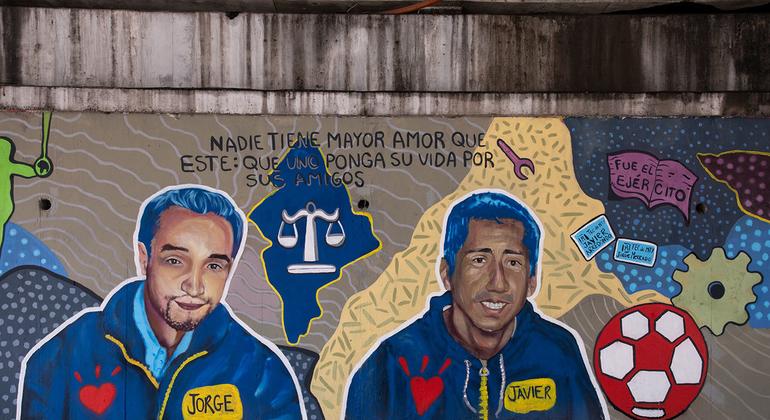Translation:
In the early hours of March 19, 2010, a tragic event marked the lives of two families in Mexico. Jorge Antonio Mercado Alonso and Javier Francisco Arredondo Verdugo, students at the Monterrey Institute of Technology, were executed by Mexican Army elements after leaving the university. The official version presented them as hitmen killed in a confrontation, but fifteen years later, their families continue to fight for comprehensive justice that will rehabilitate the memory of their loved ones.
Jorge, originally from Saltillo, had excelled in gymnastics since he was young and was focused on his engineering education. Javier, born in Todos los Santos, Baja California, was a dedicated and meticulous student. The day before the tragedy, Jorge assured his mother, Rosa Elvia Mercado Alonso, not to worry about the lack of contact, as he was busy working with Javier.
On the morning of March 19, both parents were alarmed to learn of a confrontation near the campus. Joel Medina Salazar, Jorge’s father, recalled the anguish of hearing that two hitmen had been killed. Desperate, they traveled from Saltillo to Monterrey in search of news. However, their search ended devastatingly when they found the bodies of the young men at the Forensic Medical Service, disfigured and mistreated.
Nine years later, the Army approached the family to offer to cover the funeral expenses, an act that generated indignation. Over the years, the families have persisted in their quest for justice, supported by activists and the work of UN Human Rights in Mexico. In December 2024, a sentence was handed down against five Army members responsible for executing Jorge and Javier, and altering the crime scene. Despite this sentence, for Jesús Arredondo Rodríguez, Javier’s uncle, the path to full justice is still far from complete.
The stories of Jorge and Javier align with other emblematic cases of violence in Mexico where the intervention of the Armed Forces in security tasks has led to a cycle of human rights violations. The case of Armando Humberto del Bosque Villarreal, who was forcibly disappeared in 2013, is another in this tragic narrative. His father, Humberto del Bosque Gutiérrez, left his career as a lawyer and businessman to seek justice, facing a system that has left much to be desired.
More than a decade later, a sentence was finally handed down against the Navy officers involved in Armando’s disappearance, a significant breakthrough in a country where impunity hovers around 98%. Humberto has received support from human rights committees and the UN High Commissioner’s Office in Mexico, crucial elements in his fight.
Alejandra Ortiz, an activist from the collective “Todxs somos Jorge y Javier,” emphasizes that the war on drugs has left deep scars on Mexican youth. Their collective argues that “without memory, there is no justice, and without justice, there is no peace,” reminding the importance of keeping the story alive to prevent history from repeating itself.
Despite the progress made, obstacles persist, with sentences often only reaching lower-ranking perpetrators. The families of Jorge, Javier, and Armando continue to demand their rights in a judicial system facing enormous challenges when dealing with elements of the Armed Forces involved in human rights violations. On their journey for justice, they have found the strength to persist, challenging the indifference and neglect of the State.
Source: MiMub in Spanish










